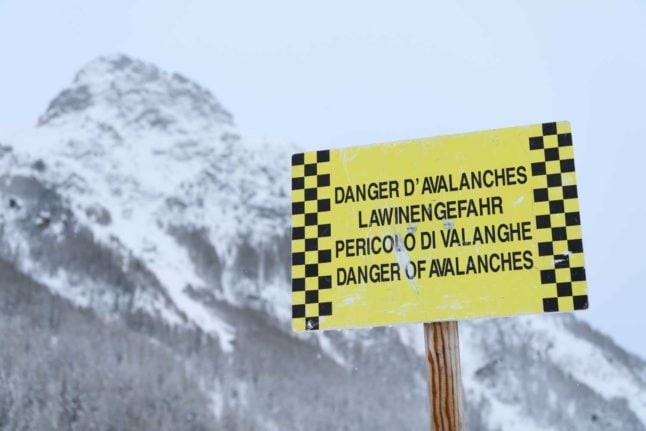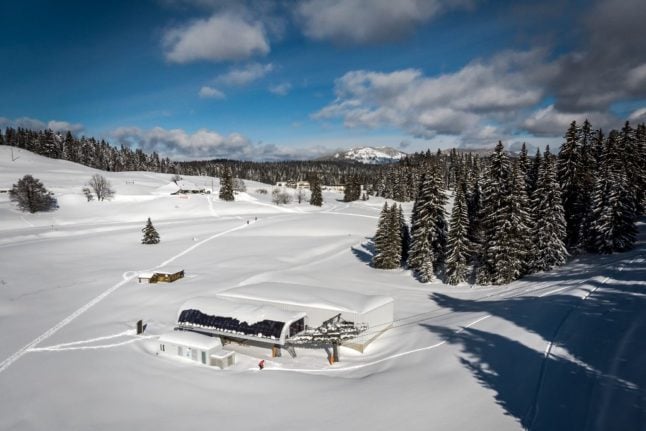Valais authorities said the current avalanche risk level is between 4 and 5, meaning ‘high’ to ‘extreme’.
The population is urged to stay at home. When out, they should obey the signs and especially stay away from the avalanche corridors, officials warned.
Avis de prudence – Danger d’avalanche
En raison des importantes chutes de neige accumulées ces derniers jours et de celles encore attendues jusqu’en fin de semaine, l’Etat du valais lance un avis de prudence à la population.#policevalais #OCC #valais https://t.co/D8HkJRRI8L
— Police Valais (@PoliceValais) January 28, 2021
Significant amounts of snow have fallen in the area in recent days, dumping 1 metre of snow above the altitude of 2,000 metres in the upper part of the canton. Between 30 and 40 centimetres are still expected.
The highest risk of avalanches is in the Goms valley, the Zermatt valley, as well as the entire right bank of the Rhône.
Some particularly threatened areas could even be evacuated, authorities said.
People planning to go skiing in Valais over the next few days should check snow conditions and avalanche warnings in place, especially as many roads, mainly in Upper Valais, are cut off, and a number of villages in the Goms Valley, Lötschental and the Zermatt region are no longer accessible by road or train.
The Avalanche Bulletin is a good source of information not just for Valais, but for all of Switzerland’s mountain regions.
READ MORE: Is the pandemic to blame for Switzerland's spate of avalanche deaths?
Avalanches have been particularly deadly in Switzerland this winter, having claimed 14 lives so far — well above the average yearly figure of eight people.
Avalanches have caused casualties in the mountains of Valais, Vaud, Graubünden, Obwalden and Schwyz.
With many people concerned about the potential for contracting coronavirus on the slopes, the idea of skiing off piste has become more attractive.
But this practice can trigger massive avalanches, so it is crucial to stay away from unsecured slopes.
READ MORE: Large crowds on Swiss ski slopes spark concern over coronavirus spread



 Please whitelist us to continue reading.
Please whitelist us to continue reading.
Member comments